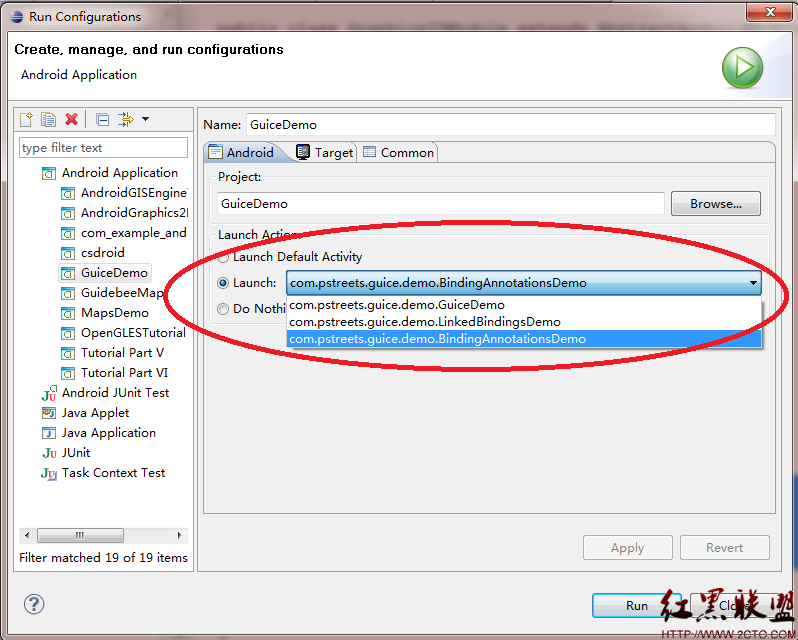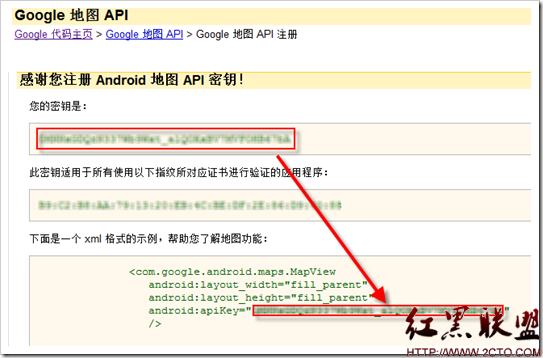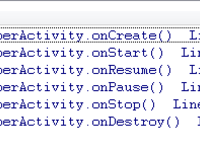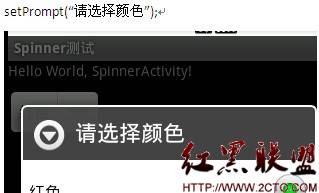Android 编码规范 | 代码风格指南
一、异常
1.不要忽视异常处理
如果像下面的代码这样,对catch后的异常作空处理,就像埋下地雷一样让人感觉到毛骨悚然:
错误的做法:
void setServerPort(String value) {
try {
serverPort = Integer.parseInt(value);
} catch (NumberFormatException e) {
}
}
正确的做法(1):
在方法声明时抛出异常,由客户程序员去负责消化这个异常。
void setServerPort(String value) throws NumberFormatException {
serverPort = Integer.parseInt(value);
}
正确的做法(2):
/** Set port. If value is not a valid number, 80 is substituted. */
void setServerPort(String value) {
try {
serverPort = Integer.parseInt(value);
} catch (NumberFormatException e) {
serverPort = 80; // default port for server
}
正确的做法(3):
/** Set port. If value is not a valid number, die. */
void setServerPort(String value) {
try {
serverPort = Integer.parseInt(value);
} catch (NumberFormatException e) {
throw new RuntimeException("port " + value " is invalid, ", e);
}
正确的做法(4):
void setServerPort(String value) throws ConfigurationException {
try {
serverPort = Integer.parseInt(value);
} catch (NumberFormatException e) {
throw new ConfigurationException("Port " + value + " is not valid.");
}
}
2、不要偷懒而捕捉一般异常
下面代码一概捕捉Exception异常,大小通吃是不对的,这样会让你在错误出现时难以定位到错误原因,一般异常无法用统一方法进行异常处理。
错误的做法:
try {
someComplicatedIOFunction(); // may throw IOException
someComplicatedParsingFunction(); // may throw ParsingException
someComplicatedSecurityFunction(); // may throw SecurityException
// phew, made it all the way
} catch (Exception e) { // I'll just catch all exceptions
handleError(); // with one generic handler!
}
二、注释/JavaDoc
1.顶部版权声明
2.包和引入块(每一块以空白行分隔)
3.类或接口的声明。 在Javadoc注释,描述的类或接口的用途。
/*
* Copyright (C) 2007 The Android Open Source Project
*
* Licensed under the Apache License, Version 2.0 (the "License");
* you may not use this file except in compliance with the License.
* You may obtain a copy of the License at
*
* http://www.apache.org/licenses/LICENSE-2.0
*
* Unless required by applicable law or agreed to in writing, software
* distributed under the License is distributed on an "AS IS" BASIS,
* WITHOUT WARRANTIES OR CONDITIONS OF ANY KIND, either express or implied.
* See the License for the specific language governing permissions and
* limitations under the License.
*/
package com.android.internal.foo;
import android.os.Blah;
import android.view.Yada;
import java.sql.ResultSet;
import java.sql.SQLException;
/**
* Does X and Y and provides an abstraction for Z.
*/
public class Foo {
...
}
类/接口注释的内容 (1项 要求写上)
类、接口的文档注释包含如下信息:
1.用途。 开发人员使用某个类/接口之前,需要知道采用该类/接口的用途。
2.如何使用。开发人员需要知道该类/接口应该如何使用,如果必要的话还需要注明不应
该如何使用。
3.开发维护的日志。一个有关于该类/接口的维护记录:时间、作者、摘要。
方法注释的内容 (1,5,6,7项 要求写上)
1.类该方法是做什么的 。
2.该方法如何工作。
3.代码修改历史纪录。
4.方法调用代码示范。
5.必须传入什么样的参数给这个方法。@param
6.异常处理。@throws
7.这个方法返回什么。@return
三、在Imports使用通配符的优劣
四、局部变量应该推迟至使用前声明并初始化
五、域(Field)命名
* 非公有,非静态字段命名以m开头。
* 静态域命名以s开头。
* 其他字段以小写字母开头。
* public static final 字段(常量) 全部大写,并用下划线连起来。
public class MyClass {
public static final int SOME_CONSTANT = 42;
public int publicField;
private static MyClass sSingleton;
int mPackagePrivate;
private int mPrivate;
protected int mProtected;
}
六、花括号没有独自一行,它们与它前面的代码占同一行
七、命名规则
1.包 小写。
com.chinacache.billing
com.chinacache.billing.node
2.类 大小写字母混合组成,头字母大写。
class Raster;
class ImageSprite;
3.接口 大小写字母混合组成,头字母大写,常以"able"、"ible"结尾 。
inte易做图ce RasterDelegate;
inte易做图ce Runna ble ;
inte易做图ce Accessible ;
4.方法 大小写字母混合组成,第一个单词的首字母小写,其后单词的首字母大写。
run();
runFast();
getBackground();
5.变量、参数 小写 ,不推荐使用下划线 ,简短明晰。
char c;
int i;
float m yW idth;
6.集合、数组 应该从命名中体现其复数的含义,例如加后缀s或前缀some。
customers ;
postedMessages ;
some Customers ;
some Items ;
八、在定义类时,应该按照访问权限的大小分别排列属性和方法。
1. public
2. protected
3. 包级别(没有访问修饰符的,默认为default)
4. private
写好代码以后对照代码规范一项一项检查一下吧。 www.zzzyk.com
(1)Eclipse 代码格式化
你可以导入development/ide/eclipse下的文件,使得Eclipse按照Android代码风格规则。选择 “Window › Preferences › Java › Code Style,使用 “Formatter › Import” ,导入android-formatting.xml,”Organize Imports › Import” 导入 android.importorder.
(2)eclipse tab 设置为4个空格:
Preferences -> General -> Editors -> Text Editors:
Insert spaces for tabs
(4)全局 查找并替换 Ctrl+F
摘自 andy_android的专栏
补充:移动开发 , Android ,




